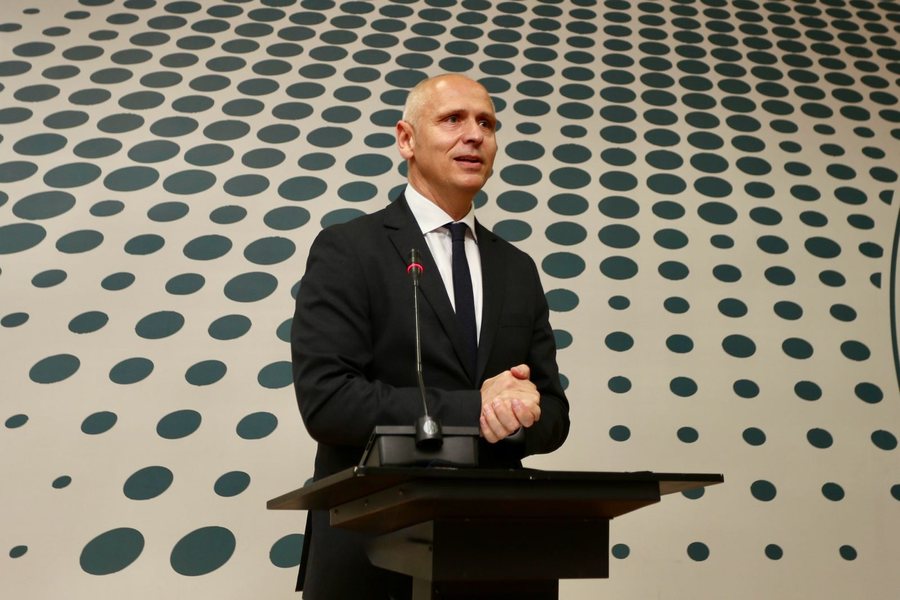
Sarajevo – The Secretary General of the Regional Cooperation Council (RCC), Amer Kapetanović, held an open lecture today at the Faculty of Political Science in Sarajevo on the topic Growth Plan: From Words to Deeds, Regional Cooperation in Practice.
During his speech, Kapetanović underlined that regional cooperation is no longer an option, but a necessity for the economic future of the region.
“The Western Balkans have two options: to grow together or to fight each other separately. 82% of the region’s citizens believe in regional cooperation. But how often do we turn this belief into concrete action? The Growth Plan and its integral part, the Regional Common Market, are our opportunity to make this a reality, to offer tangible opportunities for businesses, institutions and above all for young people who see their future in a prosperous and economically integrated Western Balkans,” said Kapetanović.
He mentioned some of the concrete benefits of regional cooperation achieved so far, such as doubling trade within the region, eliminating roaming fees between Western Balkan countries, reducing roaming prices with the EU, creating "green lanes" to reduce waiting times at borders, and increasing labor mobility.
The Growth Plan and the challenges of EU integration
The Growth Plan for the Western Balkans, presented by the European Commission, aims to pave the way for access to the EU Single Market, attract new investments and create jobs. However, Kapetanovic warned that these benefits come with conditions.
“The EU has made it clear that if we want to benefit from the Growth Plan, we must first meet the objectives of regional economic integration and internal reforms. The Regional Common Market is not just a policy, but the path to a better and more secure future. If fully implemented, it could increase the region’s GDP by 10%,” he said.
Stressing the need for urgent reforms, he added that the EU will allocate 6 billion euros in funds, but only to those economies that demonstrate progress in governance, public finance management and the rule of law. “Some Western Balkan countries have already submitted their reform agendas and will receive advance funding. Unfortunately, Bosnia and Herzegovina has not yet finalized its agenda, risking losing these vital funds. We cannot let this opportunity slip away,” Kapetanovic warned.
RCC: A role beyond the Western Balkans
Kapetanović also stressed that the RCC is not focused only on the Western Balkans, but plays a broader role in South-Eastern Europe (SEE), acting as the operational arm of the South-Eastern European Cooperation Process (SEECP) with 13 participants, including five EU member states.
He also mentioned the coordinating role of the RCC in the SEE 2030 Strategy, which is in line with the UN Sustainable Development Goals and aims to address key regional challenges such as poverty, depopulation and natural disaster preparedness.
“We are not limited to the Western Balkans. We are an operational arm of the governments of Southeastern Europe, supporting sustainable economic growth, green and digital transformation, and reducing the social and economic gap with the EU,” he emphasized.
In conclusion, the RCC Secretary General gave a clear message for the future:
“Regional cooperation is not about politics, institutions or bureaucracy, it is about people. It is about ensuring that in five or ten years, we all have more opportunities, better jobs and an easier path to success here, in our region. The future is within our reach, but only if we choose to build it together.”
The RCC remains committed to advancing regional cooperation and ensuring that the Western Balkans and Southeastern Europe move towards a more connected and sustainable future. (A2 Televizion)











